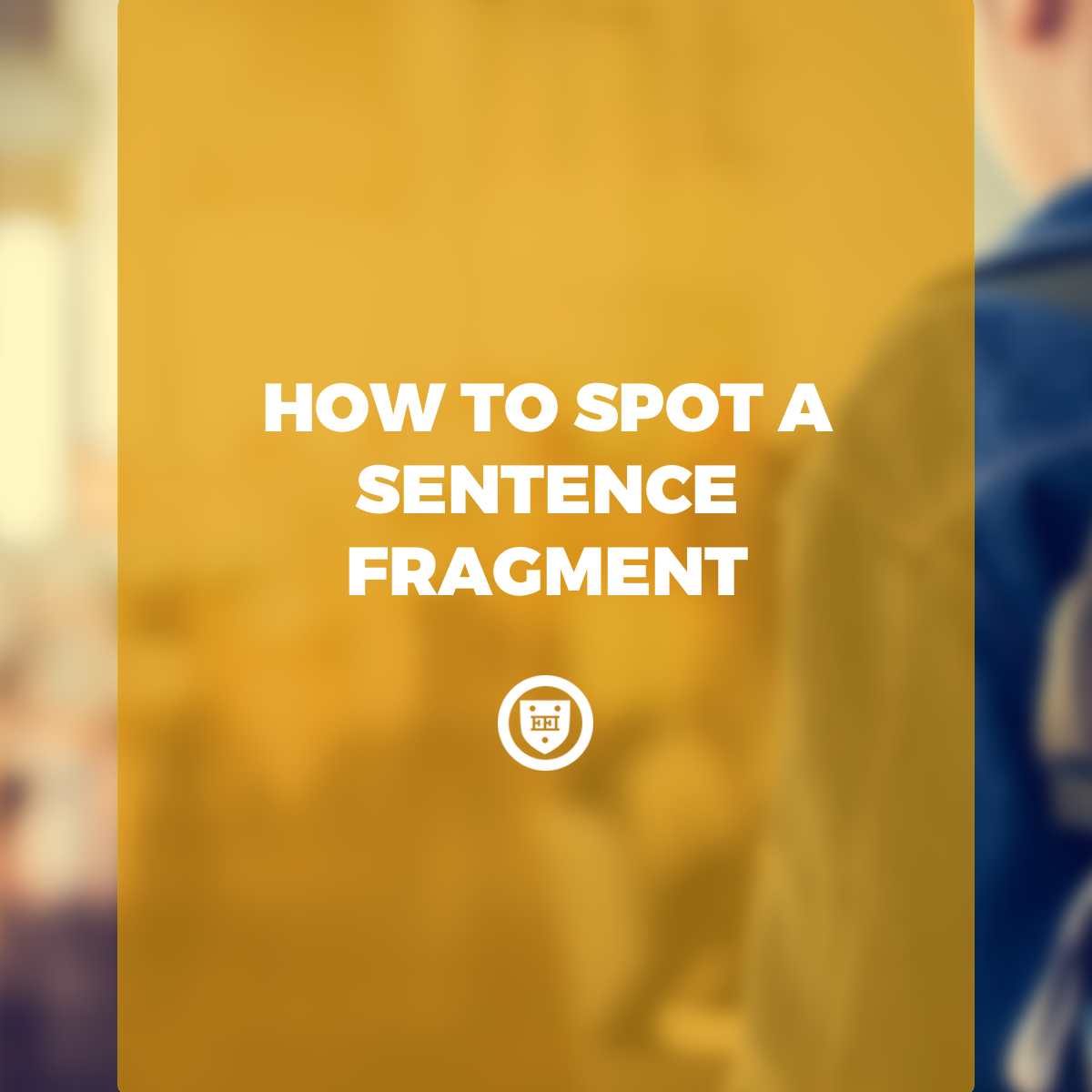How to Spot a Sentence Fragment
The ACT and SAT test a number of grammar concepts, but the ability to recognize proper sentence structure is one of the fundamental skills that students must learn to perform well on the English and Writing & Language sections of these tests. One of the first steps in this process is understanding the difference between a complete sentence and a sentence fragment.
Take a look at the phrases below:
“Students who want to succeed”
“Preparing themselves for tests”
“Although there are many topics to cover”
“Certainly requires dedicated practice”
Each of these phrases communicates part of a sentence but lacks a complete thought. Without a complete thought, a phrase is considered a sentence fragment even if it contains both a subject and a verb. As an independent clause, a complete sentence must stand on its own. It does not have to rely on other parts of the sentence to get its point across because it has a clear subject and accompanying verb phrase or predicate. When the full thought is not expressed because either the subject or the verb is missing, you have a sentence fragment.
The problem with fragments is that they don’t tell the whole story. Key elements are missing, leaving the reader hanging without a sense of the full thought. On standardized tests, your job is to recognize incomplete sentences and identify the missing element. It sounds fairly straightforward, but the ACT and SAT include extended fragments that can make it difficult to spot the missing element. To avoid this common error, let’s look at some ways to spot a sentence fragment.
1. No Subject
The subject is the who or what of a sentence. The subject must complement the verb to tell us the whole story of a sentence. Without a subject, there is no one or nothing to do the action, resulting in an incomplete thought.
Example:
“Certainly requires dedicated practice”
2. No Verb
Verbs tell readers what the subject is doing. When there is no verb communicating the action of a sentence, we have no idea what is happening. Make sure there is always a verb that makes clear the action in the sentence.
Example:
“One of the greatest challenges in the college admissions process”
3. Participle Phrases
Participle phrases often begin with a verb ending in -ing (present) or -ed (past). These phrases function as adjectives, but they do not result in a complete thought on their own.
Examples:
“Preparing themselves for tests”
“Confused by the assignment”
4. Subordinators/Relative Clauses
Clauses that begin with subordinators (although, because, while, after, etc.) or relative pronouns (who, which, where, when, that, etc.) are dependent clauses and cannot stand alone. A dependent clause needs an independent clause to complete the thought. Even though subordinate and relative clauses may have both a subject and a verb, they don’t tell the whole story.
Examples:
“Although there are many topics to cover”
“Students who want to succeed”
5. Appositives
An appositive is a noun phrase that explains or defines the preceding noun or pronoun. Appositives, usually offset by commas, essentially add further identifying or clarifying information to the main subject. Since appositives lack action verbs, they are always considered fragments.
Example:
“The most attentive student in class”
These are some of the more common ways in which a sentence fragment may occur, but the most important takeaway is that almost every fragment is the result of one of three key elements:
A missing subject
A missing verb
An incomplete thought
To fix a fragment, identify the missing element and add it to the sentence. It is a fairly straightforward process made difficult by the presentation of questions in a standardized test format.
Now that we have identified specific types of fragments to keep an eye out for, use this information to guide you as you begin to recognize the differences in complete and incomplete sentences. Before long, the chances of you getting caught off-guard by sentence fragments will lower significantly. Just remember those three key elements to keep you on track!
Jon G. is originally from Houston, Texas. He holds a Bachelor's degree from Harvard University and is currently one of the resident English gurus at Elite Prep Los Angeles. Nothing makes him more proud and pumped up than watching his students succeed. When it comes to hitting the books, Jon recommends starting early and studying in increments to avoid burnout. He's a huge basketball fan, loves green tea, and his favorite vocabulary word is "seditious."


